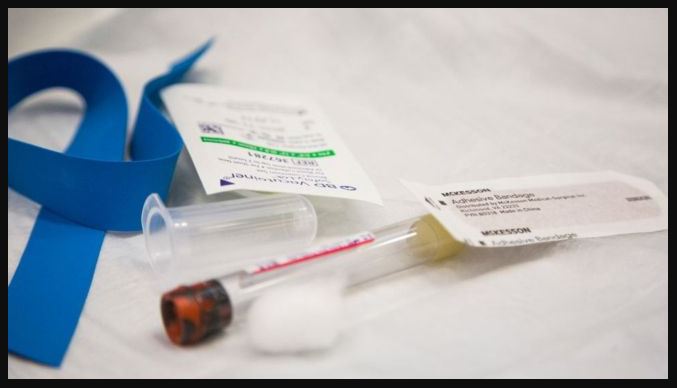 |
Corona virus: What is plasma therapy and how is COD 19 treated in Pakistan in this way? |
An elderly man in Hyderabad was diagnosed with the corona virus and his condition continued to deteriorate. The doctors put him on a ventilator so he could breathe easily.
Meanwhile, his doctor daughter asked the hospital authorities to treat his father with plasma therapy. The doctors accepted his request and he has now become the first patient in Pakistan to undergo plasma therapy for treatment.
Confirming this, Dr Aftab, a focal person for corona virus at Liaquat University Hospital in Hyderabad, said that the 53-year-old patient had been transfused into the blood plasma of a person who had recovered from the corona virus.
He said the patient's family had "volunteered for the experiment."
The same treatment for pesso immunization is called 'plasma therapy' or convulsant plasma. This method is being used in many countries around the world to treat patients with code 19, the success of which has yet to be determined.
Dr. Aftab says that at present nothing can be said about whether the patient has benefited from this therapy or not.
"Even under normal circumstances, the process of improvement is very slow. Hopefully in a few days something will be understood, now they are being monitored continuously.
Plasma therapy allowed in Pakistan
The Sindh government had three days ago allowed three hospitals in the province to transfuse plasma from the blood of patients recovering from the corona virus to evaluate the treatment.
This is only allowed in patients whose condition is critical.
Earlier in March, the country's first patient infected with the corona virus donated his blood plasma after recovery to treat people in critical condition with peso immunization or plasma therapy.
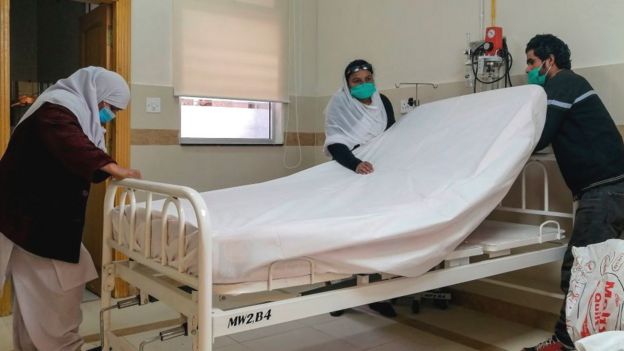 JTN IMAGES
JTN IMAGES
The federal government approved plasma therapy clinical trials in the first week of April. At the direction of the federation, the Ministry of Health had approved the plasma therapy by the drug monitoring agency DRAP.
The Sindh government then allowed the trial in three hospitals in the province.
A notification issued by the Sindh Health Department said that permission was granted to one of the two hospitals in Karachi, Government Doctor Rath Fau Civil Hospital and a private sector National Institute of Blood Diseases (NIBD). Is.
A Liaquat University Hospital in Hyderabad has been nominated for experimental use of Corona's Peso Immunization Convulsant Plasma.
According to the notification, the three nominated hospitals will have a team of specialists, including a physician, blood transfusion specialist, infectious disease specialist, an intensive care unit specialist, a consultant hematologist and representatives of the Sindh Blood Transfusion Authority.
What is plasma therapy or convulsive plasma?
In plasma therapy, blood is drawn from a person recovering from the corona virus and then the separated plasma is transferred to the patient in critical condition.
Plasma is actually a transparent part of the blood that is obtained by separating blood cells. Plasma contains antibodies and other proteins.
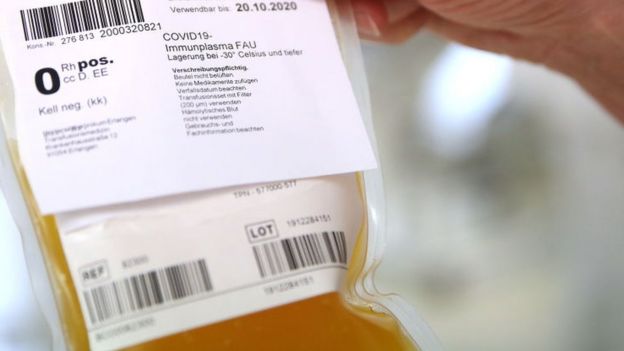 JTN IMAGES
JTN IMAGES
Transfer of plasma containing antibodies provides the sick person with 'passive immunity' to fight the disease. This process can take weeks, even months, to take effect.
It should be noted that blood contains 55% plasma. Ninety percent of plasma is water. That is, it contains only 10% antibodies.
This concept of treatment is not new but has existed since 1890. According to Michael Joiner, a professor at the Mayo Clinic in the United States, this is not a new way of treating healthy patients with blood.
"It was used to prevent the Spanish flu epidemic more than a century ago and has recently been used to treat Ebola and SARS epidemics," he said.
So far, small-scale research has focused on its effectiveness, and large-scale research is needed on how effective this treatment is for treating corona virus.
What is happening to their experimental patients?
So far, most of the world's plasma therapies have been used to treat corona in critically ill patients.
The reason, according to medical experts, is that the body of these patients is not producing antibodies against the virus due to diabetes or high blood pressure.
Who can donate plasma?
First of all know that nothing can be said about the success of this method at the moment and it is still being done on an experimental basis.
Only people who have fully recovered from the corona virus can donate plasma. After being diagnosed with the corona virus, his two intermittent tests came back negative, and even after the last test came negative, he has spent 14 days in quarantine.
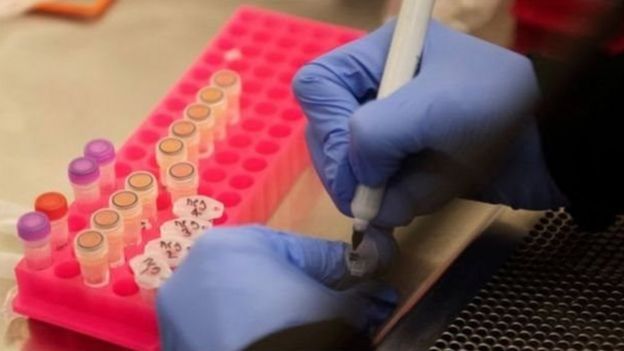 JTN IMAGES
JTN IMAGES
But there are also other terms and protocols.
The key condition is that both the infected person and the healthy plasma donor are willing.
According to medical experts, the person donating plasma must have some tests. When donating plasma, tests for corona virus, other respiratory viruses, hepatitis B, hepatitis C, HIV and some other tests must be negative.
Tauseef Khan, a doctor at a government hospital in Lucknow, India, told the BBC: "Two tests for corona must be negative. They are then sent to a 14-day quarantine. If they want to donate plasma, they will have to go to the hospital for an RTPCR test. If the result is negative, they can give plasma.
Dr. Tauseef is the first person in India to donate plasma. He contracted the infection in March while treating an infected patient.
He says the patient he gave the plasma to is now getting better.
According to him, it is important that plasma donors have an adequate supply of specific antibodies to the corona virus for at least 10 days and that they are healthy in every way.
This way and where to treatIs?
There are experiments around the world using plasma for treatment.
The United States has already launched this major research project in more than 1,500 hospitals. Scientists in the United States have developed a nationwide plan that has so far treated 600 patients.
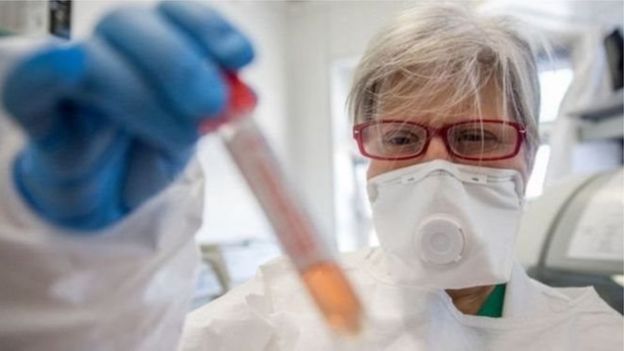 JTN IMAGES
JTN IMAGES
It was used in China, while the United Kingdom announced about three weeks ago that it would offer plasma therapy to patients in critical condition.
In the middle of last month, the UK Department of Health's Blood Transplant Agency asked those who had recovered from Code 19 to donate blood so that they could test and see how beneficial it was.
Michael Joiner, a professor at the Mayo Clinic in the United States, is leading the project.
"What we learned during the first week is that the safety and immunizations have not yet had a negative effect," he said.
He says there is evidence that the supply of oxygen has improved, as has the health of patients.
According to him, there is still a lot about plasma that we do not know about. And the results need to be examined.
Scientists say that plasma is not a magical cure that will cure the patient in any case. However, since other methods of treating the virus are so limited, similar treatments can be expected until a vaccine is discovered.



No comments:
Post a Comment